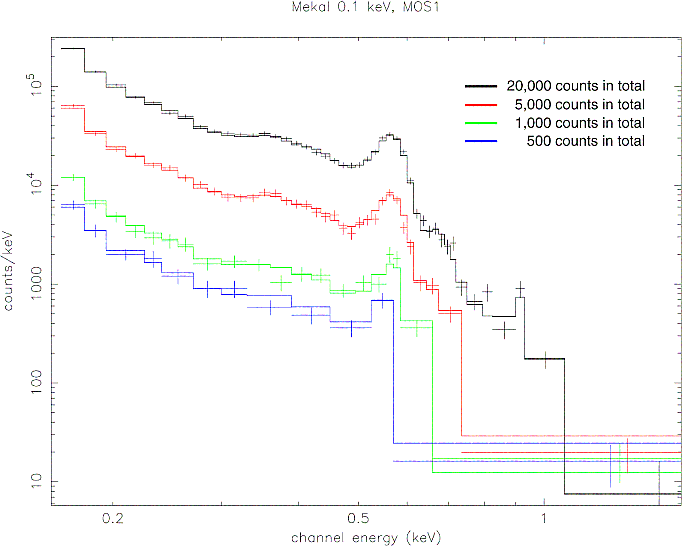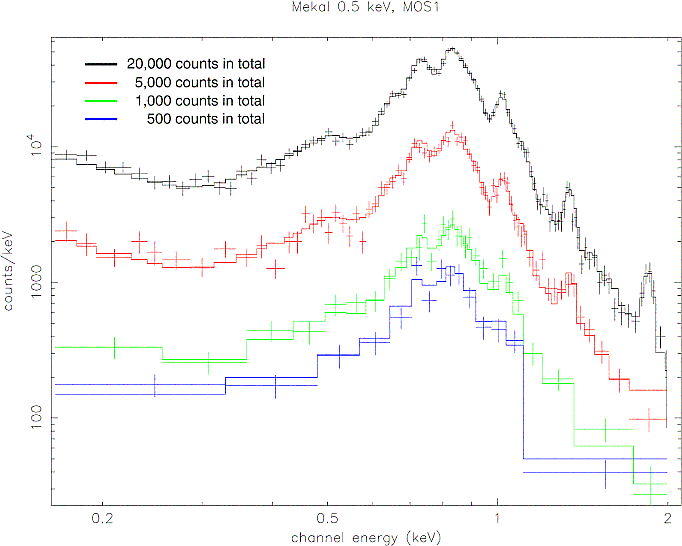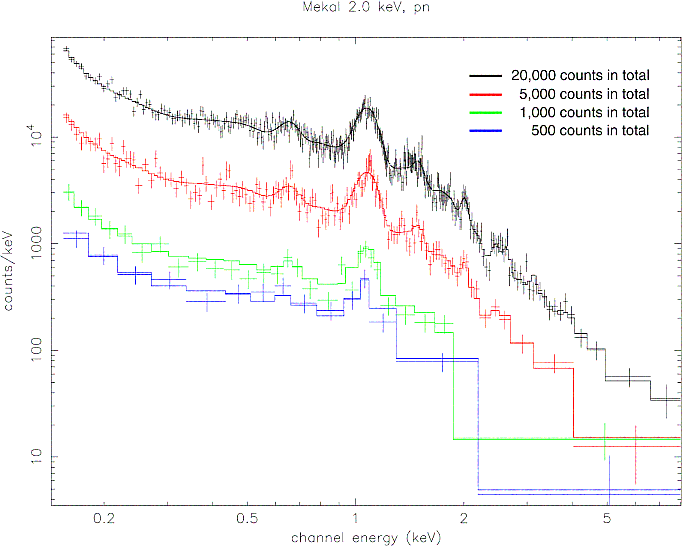Next: 3.3.12.2 EPIC flux to count rate conversion Up: 3.3.12 EPIC-specific proposal submission information Previous: 3.3.12 EPIC-specific proposal submission information
In Figs. 44-48 we display a series of Mekal model spectra at different energies, ranging from 0.1 to 10.0 keV, with successively increasing total photon numbers (from 500 to 20,000 counts). Although these figures have been created using on-ground calibrations, they can be still used as a qualitative reference for the expected spectral quality. These show which data quality can be reached for a given total number of counts. All model spectra have been produced with XSPEC, faking a Mekal model spectrum and using the ready-made response matrices for MOS1 and pn for the thin filter and full window mode. Photon statistics was allowed and the faked spectra were rebinned in a way such that the 5 sigma significance criterion is fulfilled. For the 2.0 keV model, the MOS1 and pn cameras are compared directly (Figs. 46 and 47), while for all other energies only the MOS1 model spectra are displayed.
Note: These simulated spectra have been produced with a particular set of response matrices for MOS1 and pn. Users are strongly recommended to perform simulations of the expected spectrum, using the most updated calibration files. Fig. 44 to 48 provide only a guideline of the expected overall spectral quality and should not be used for any quantitative estimates.
 |
 |
 |
 |
 |
European Space Agency - XMM-Newton Science Operations Centre